Kultiration är ett bra band :)
Jag pluggar, ergo pluggar jag inte
En snygg tjej:

En snygg kille:

Och lite andra bilder:
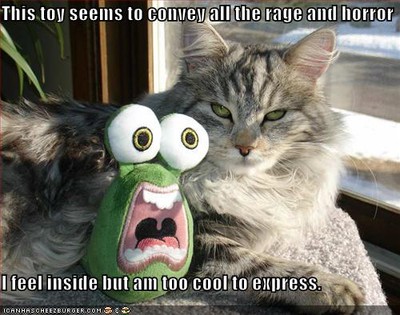

ÅÅÅÅH. ååååååååååh. Okeeeeeej. Fiiiiiiiiiiiiiiiiiiiiiiiiiiiiiiiiiiiiiiiiiiiiiiiiiiiiiiiiiiiin

En snygg tjej:

En snygg kille:

Och lite andra bilder:


ÅÅÅÅH. ååååååååååh. Okeeeeeej. Fiiiiiiiiiiiiiiiiiiiiiiiiiiiiiiiiiiiiiiiiiiiiiiiiiiiiiiiiiiiin

Mwehe
Och sen tänkte jag att den här bilden, eller killen, kan representera Humlisch ;) När han är en spelare i MFF, vältränad och hårig!
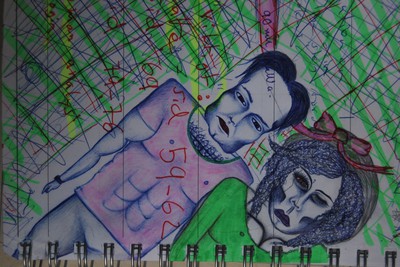

Hur vet du?
Nu kan jag 1: inte rita realistiska ansikten och 2: definitivt inte rita av människor
Så istället för att säga att det är här Alicia i hennes fan-kyrka så säger jag att den här bilden är till Alicia!
PLUS eftersom jag ritade det här på fysiklektionen får ni fina formler på köpet; acceleration(v) * tid(t) = sträcka(s), INTRESSANT INTRESSANT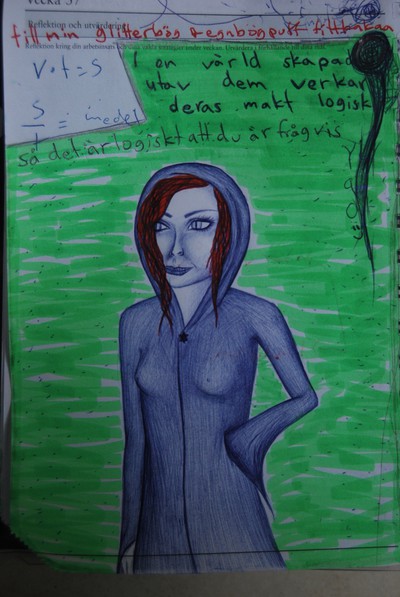
:D
Det här är ett utdrag jag har tagit från Mumrik (marcus Appelros). Det är riktigt klokt!! Brabra läsning
...the Equation of Happiness: Happiness equals That Which You Have minus That Which You Think You Need[to be happy]. Each day we use and see thousand of things that would make millions of people in the world blissfully happy but which we don’t see because we take them for granted. The happiness of using a good modern day toilet is canceled out by the belief that it is a necessity for happiness,(2) it will then only turn to grief when you are forced to use an old unclean toilet. If instead you see that you would still live and be happy without the modern day toilet, each time you use it you will cherish it as its existence means you don’t have to use a filthy toilet.
Analyzing the equation further we find that there are two ways to increase your happiness: a) by increasing what you have or b) by decreasing what you think you need. Option a) is by far the more popular way, as it is much more obvious. The problem with a) is that some time after you have acquired a new ‘thing’ you often take it for granted, negating the happiness it once provided.(3)

Till er som vill läsa hela texten (rekommenderas... riikkttiggt braaaa!):
Skrev denna artikel nästan två år sedan och fick precis veta att den använts som undervisningsmaterial i en kurs om etik på lunds universitet (min reaktion: woopwoopwoop!)! Tänkte jag kunde dela med mig av den här då tankegångarna som presenteras gör det väldigt svårt, om inte omöjligt, för mig att vara olycklig. Kommentarer uppskattas, på engelska hope you dont mind.
The dependence-free nature of happiness.
Marcus Appelros
April 2009
Why are we happy? Or rather, why are we unhappy? Suicide rates in the West are soaring while at the same time people in underdeveloped countries are coping with what would for us be intolerable misery. ‘It’s all about what we are used to,’ many say, and I agree. The question is, can we change that? The source of a lot of misery in the world is the false conception of dependency on something in order to achieve happiness. Without this I can’t be happy, when I get that I will be happy. The problem is, if you believe in this fallacy, and almost every single person on earth does to a varying degree, it automatically becomes true.
Lets test the notion ‘I need this to be happy.’ This could relate to a number of things, a car, a friend, a drug, a vacation. . . Happiness is, as can be quite easily shown, not dependent on material things: there exist happy people in the slums of India as well as unhappy people in the skyscrapers of New York. Neither is it dependent on the number of acquaintances you associate with: There exist happy eremites as well as unhappy movie stars. By the same principle we can
also rule out health, love, strength, intellect, success and surely any other state or condition present in life as being a prerequisite for happiness.
What then prevents the people in the wealthyWest to experience what would be complete and utter bliss for the poor Indian, had they switched places? Since there is no difference to speak of physically, the answer must be psychological. To desire something is to have the illusion that you need it to be happy. As I mentioned previously this belief paradoxically makes itself true: if you truly believe you need to eat a banana to be happy, then you would be unhappy any time you did not eat a banana; and in the event of a global extinction of bananas, the rational choice would be suicide, since through your knowledge, you could never be happy.
When you say ‘I need this to be happy,’ what you are really saying is ‘I think I need this to be happy.’ Just as the statement ‘Chocolate tastes good’ actually means ‘I think chocolate tastes good.’ Someone with limited knowledge about human diversity in taste might say ‘Chocolate tastes good’ but with that mean ‘Everyone thinks chocolate tastes good,’ trying to apply his belief universally. The erroneous reasoning is more easily pointed out by extending the phrase to ‘I think everyone thinks chocolate tastes good,’ which is its essential meaning. This phrase is entirely true, as you can actually believe this, but most people will see the fallacy in that you thinking something doesn’t make everyone think the same thing.
If we extend and analyze the phrase ‘I need this to be happy’ in the same way we find the true meaning as ‘I think I need this to be happy.’ This is, again, entirely true, but when we attempt to prove it wrong using the same previous method we see that it cannot be done: you thinking something does make you think the same thing, as you alone are the the universal in this case, there is no one else you have to apply the belief to. Ergo the statement ‘I need this to be happy’ makes itself true, and we should not seek to prove it irrational, as it is perfectly sensible. What we should instead realize is that the entire statement is founded on ignorance. Just as thinking everyone likes chocolate is founded on unawareness of peoples’ different tastes, so is thinking you need a specific thing in order to be happy founded on unawareness of the dependence-free nature of happiness.
We showed earlier that happiness is not dependent on any single element, yet the phrase ‘I need this to be happy’ directly contradicts this. Being aware of this, you can no longer ‘think you need’ something to be happy, which, by the same principle, automatically makes the statement true: ‘I don’t think I need this to be happy’ translates to ‘I don’t need this to be happy.’ As soon as you realize this, that all unhappiness is in fact irrational,(1) you are free to perceive the things you do have instead of gloating over that which you don’t. This ultimately leads to the Equation of Happiness: Happiness equals That Which You Have minus That Which You Think You Need [to be happy]. Each day we use and see thousand of things that would make millions of people in the world blissfully happy but which we don’t see because we take them for granted. The happiness of using a good modern day toilet is canceled out by the belief that it is a necessity for happiness,(2) it will then only turn to grief when you are forced to use an old unclean toilet. If instead you see that you would still live and be happy without the modern day toilet, each time you use it you will cherish it as its existence means you don’t have to use a filthy toilet.
Analyzing the equation further we find that there are two ways to increase your happiness: a) by increasing what you have or b) by decreasing what you think you need. Option a) is by far the more popular way, as it is much more obvious. The problem with a) is that some time after you have acquired a new ‘thing’ you often take it for granted, negating the happiness it once provided.(3)
So then instead of buying a new car, or getting a new lover, one could learn to appreciate the current one, in accordance with option b). Here there is no limit to what you could learn to appreciate, and as the equation shows, the effect
of learning to appreciate something old, is the same as getting something new. From this we also derive that the happiest person is he who desires nothing and has everything, as he will cherish all he has and as he has everything he has
everything to cherish. There is a practical limit to this though, and that is what we can perceive. There is simply not enough time nor brain capacity to be able to acknowledge beneficial things beyond a certain point. If you give a poor man
one hundred billion dollars, would that make him happier than if you gave him ten billion dollars? I say no, or at least not by very much, simply because he is unable to perceive what he could do with one hundred billion that he couldn’t
already do with ten billion. In the same way does your body consist of billions of atoms, and without them your existence wouldn’t even be possible, but how could you be aware of and cherish every single one of them?
Considering this we see that you don’t need everything in order to be optimally happy, in fact you don’t even need very much. You just need to be happy for what you already have, and if you are, there is no limit to the happiness you can achieve!
(1) Do note, I am not claiming that being unhappy is irrational, only that dwelling within it thinking happiness is impossible, is. Being upset and terribly unhappy about the death of a friend is perfectly sound, remaining inconsolable thinking happiness is impossible without your friend, is not.
(2) This belief is almost exclusively an unconscious one, because as soon as you question whether the toilet is a necessity, you must see that people cope without it. Thus, merely being aware of using the toilet is enough to shatter the belief that it is a necessity for happiness, ergo taking the toilet for granted.
(3) Doesn’t need to be a material ‘thing,’ a classic example of this thesis is fading love.
...the Equation of Happiness: Happiness equals That Which You Have minus That Which You Think You Need[to be happy]. Each day we use and see thousand of things that would make millions of people in the world blissfully happy but which we don’t see because we take them for granted. The happiness of using a good modern day toilet is canceled out by the belief that it is a necessity for happiness,(2) it will then only turn to grief when you are forced to use an old unclean toilet. If instead you see that you would still live and be happy without the modern day toilet, each time you use it you will cherish it as its existence means you don’t have to use a filthy toilet.
Analyzing the equation further we find that there are two ways to increase your happiness: a) by increasing what you have or b) by decreasing what you think you need. Option a) is by far the more popular way, as it is much more obvious. The problem with a) is that some time after you have acquired a new ‘thing’ you often take it for granted, negating the happiness it once provided.(3)

Till er som vill läsa hela texten (rekommenderas... riikkttiggt braaaa!):
Skrev denna artikel nästan två år sedan och fick precis veta att den använts som undervisningsmaterial i en kurs om etik på lunds universitet (min reaktion: woopwoopwoop!)! Tänkte jag kunde dela med mig av den här då tankegångarna som presenteras gör det väldigt svårt, om inte omöjligt, för mig att vara olycklig. Kommentarer uppskattas, på engelska hope you dont mind.
The dependence-free nature of happiness.
Marcus Appelros
April 2009
Why are we happy? Or rather, why are we unhappy? Suicide rates in the West are soaring while at the same time people in underdeveloped countries are coping with what would for us be intolerable misery. ‘It’s all about what we are used to,’ many say, and I agree. The question is, can we change that? The source of a lot of misery in the world is the false conception of dependency on something in order to achieve happiness. Without this I can’t be happy, when I get that I will be happy. The problem is, if you believe in this fallacy, and almost every single person on earth does to a varying degree, it automatically becomes true.
Lets test the notion ‘I need this to be happy.’ This could relate to a number of things, a car, a friend, a drug, a vacation. . . Happiness is, as can be quite easily shown, not dependent on material things: there exist happy people in the slums of India as well as unhappy people in the skyscrapers of New York. Neither is it dependent on the number of acquaintances you associate with: There exist happy eremites as well as unhappy movie stars. By the same principle we can
also rule out health, love, strength, intellect, success and surely any other state or condition present in life as being a prerequisite for happiness.
What then prevents the people in the wealthyWest to experience what would be complete and utter bliss for the poor Indian, had they switched places? Since there is no difference to speak of physically, the answer must be psychological. To desire something is to have the illusion that you need it to be happy. As I mentioned previously this belief paradoxically makes itself true: if you truly believe you need to eat a banana to be happy, then you would be unhappy any time you did not eat a banana; and in the event of a global extinction of bananas, the rational choice would be suicide, since through your knowledge, you could never be happy.
When you say ‘I need this to be happy,’ what you are really saying is ‘I think I need this to be happy.’ Just as the statement ‘Chocolate tastes good’ actually means ‘I think chocolate tastes good.’ Someone with limited knowledge about human diversity in taste might say ‘Chocolate tastes good’ but with that mean ‘Everyone thinks chocolate tastes good,’ trying to apply his belief universally. The erroneous reasoning is more easily pointed out by extending the phrase to ‘I think everyone thinks chocolate tastes good,’ which is its essential meaning. This phrase is entirely true, as you can actually believe this, but most people will see the fallacy in that you thinking something doesn’t make everyone think the same thing.
If we extend and analyze the phrase ‘I need this to be happy’ in the same way we find the true meaning as ‘I think I need this to be happy.’ This is, again, entirely true, but when we attempt to prove it wrong using the same previous method we see that it cannot be done: you thinking something does make you think the same thing, as you alone are the the universal in this case, there is no one else you have to apply the belief to. Ergo the statement ‘I need this to be happy’ makes itself true, and we should not seek to prove it irrational, as it is perfectly sensible. What we should instead realize is that the entire statement is founded on ignorance. Just as thinking everyone likes chocolate is founded on unawareness of peoples’ different tastes, so is thinking you need a specific thing in order to be happy founded on unawareness of the dependence-free nature of happiness.
We showed earlier that happiness is not dependent on any single element, yet the phrase ‘I need this to be happy’ directly contradicts this. Being aware of this, you can no longer ‘think you need’ something to be happy, which, by the same principle, automatically makes the statement true: ‘I don’t think I need this to be happy’ translates to ‘I don’t need this to be happy.’ As soon as you realize this, that all unhappiness is in fact irrational,(1) you are free to perceive the things you do have instead of gloating over that which you don’t. This ultimately leads to the Equation of Happiness: Happiness equals That Which You Have minus That Which You Think You Need [to be happy]. Each day we use and see thousand of things that would make millions of people in the world blissfully happy but which we don’t see because we take them for granted. The happiness of using a good modern day toilet is canceled out by the belief that it is a necessity for happiness,(2) it will then only turn to grief when you are forced to use an old unclean toilet. If instead you see that you would still live and be happy without the modern day toilet, each time you use it you will cherish it as its existence means you don’t have to use a filthy toilet.
Analyzing the equation further we find that there are two ways to increase your happiness: a) by increasing what you have or b) by decreasing what you think you need. Option a) is by far the more popular way, as it is much more obvious. The problem with a) is that some time after you have acquired a new ‘thing’ you often take it for granted, negating the happiness it once provided.(3)
So then instead of buying a new car, or getting a new lover, one could learn to appreciate the current one, in accordance with option b). Here there is no limit to what you could learn to appreciate, and as the equation shows, the effect
of learning to appreciate something old, is the same as getting something new. From this we also derive that the happiest person is he who desires nothing and has everything, as he will cherish all he has and as he has everything he has
everything to cherish. There is a practical limit to this though, and that is what we can perceive. There is simply not enough time nor brain capacity to be able to acknowledge beneficial things beyond a certain point. If you give a poor man
one hundred billion dollars, would that make him happier than if you gave him ten billion dollars? I say no, or at least not by very much, simply because he is unable to perceive what he could do with one hundred billion that he couldn’t
already do with ten billion. In the same way does your body consist of billions of atoms, and without them your existence wouldn’t even be possible, but how could you be aware of and cherish every single one of them?
Considering this we see that you don’t need everything in order to be optimally happy, in fact you don’t even need very much. You just need to be happy for what you already have, and if you are, there is no limit to the happiness you can achieve!
(1) Do note, I am not claiming that being unhappy is irrational, only that dwelling within it thinking happiness is impossible, is. Being upset and terribly unhappy about the death of a friend is perfectly sound, remaining inconsolable thinking happiness is impossible without your friend, is not.
(2) This belief is almost exclusively an unconscious one, because as soon as you question whether the toilet is a necessity, you must see that people cope without it. Thus, merely being aware of using the toilet is enough to shatter the belief that it is a necessity for happiness, ergo taking the toilet for granted.
(3) Doesn’t need to be a material ‘thing,’ a classic example of this thesis is fading love.
Ååååh
Fan vad jobbigt - jag skriver en uppsats som jag blir jättenöjd med, dagen efter läser jag om den, och den suuuugggggggggeeeeeeeeerrrrrrrrr ffffffaaaaaaaaaannnnnnnnnnnnnnnnnnnnnnnnnnnnnnnnnnnnnnnnnnnnnnnnnnnnnnnnnnnnnnnnnnnnnnnnnnnnnnnnnnnnnnnnnnnnnnnnnnnnnnnnnnnnnnnnnnnnnnnnnnnnnnnnnnnnnnnnnnnnnnnnnn
Nej jag bara skoja peace and love dont worry be happy osv - nu ska jag börja med selleri dieten
(nu skoja jag på riktgt)
Till alla anorexiabarn:
du bränner mer kalorier av att förbränna selleri än vad som finns i grönsaken. :D
 Fin bild!!!
Fin bild!!!
Nej jag bara skoja peace and love dont worry be happy osv - nu ska jag börja med selleri dieten
(nu skoja jag på riktgt)
Till alla anorexiabarn:
du bränner mer kalorier av att förbränna selleri än vad som finns i grönsaken. :D
 Fin bild!!!
Fin bild!!!Detta fält måste fyllas i
Bra saker: The Knife, männsikor vars namn börjar på A, öl, occck Reggae(L)(L)(L)
Det här då en fransk tidning a la Alichaaa
Och gud sade, massa grejer, till exempelt det här:
Vilket fall som helst är ju bevisen tydliga; Alicia är en cupcakeomgregnbågsbögglitterpuff. I början av min forskning var jag tämligen osäker - kanske fyller Alicia kanske inte kriterierna, hon har ju trots allt inget glitterregnbågshår.
Men nu kan jag med säkerhet konstatera, att Alica är en GLiTTERBÖG, en röd puff smarrig som regnbågsgodis, men luras ej av den sockriga utsidan!! Alicia är den nya versionen, som blivit resistant mot all sorts förnuft; slutet är nära mina vänner; troll skall ni alla bli när Alicia lägger vantarna på er. Vi kommer snart in i fiskarnas tidsålder, och vad menas med det? Jag har ingen aning, vilket fall som helst lär ni vara döda innan det händer, då Alicia skall ta över hela världen, bränn ner alla H&M kyrkor; endast GLiTTERBÖGAR skall leva kvar, bränn ner shock, huliganerna, ja och alla andra som inte hanterar den forntida konsten trollleri, tiden är inne min vän, tiden är inne för de alternativa alternativare att ta sin makt tillbaka!!!
 Allt detta för att säga; Jag har tråkigt, läxor är tråkiga, och jag är i smyg kär i Alicia och den ända anledningen till varför jag umgås med hennes är för att höra hennes röst... och sniffa hennes bak... och våldta hennes barn...
Allt detta för att säga; Jag har tråkigt, läxor är tråkiga, och jag är i smyg kär i Alicia och den ända anledningen till varför jag umgås med hennes är för att höra hennes röst... och sniffa hennes bak... och våldta hennes barn...
Men nu kan jag med säkerhet konstatera, att Alica är en GLiTTERBÖG, en röd puff smarrig som regnbågsgodis, men luras ej av den sockriga utsidan!! Alicia är den nya versionen, som blivit resistant mot all sorts förnuft; slutet är nära mina vänner; troll skall ni alla bli när Alicia lägger vantarna på er. Vi kommer snart in i fiskarnas tidsålder, och vad menas med det? Jag har ingen aning, vilket fall som helst lär ni vara döda innan det händer, då Alicia skall ta över hela världen, bränn ner alla H&M kyrkor; endast GLiTTERBÖGAR skall leva kvar, bränn ner shock, huliganerna, ja och alla andra som inte hanterar den forntida konsten trollleri, tiden är inne min vän, tiden är inne för de alternativa alternativare att ta sin makt tillbaka!!!
 Allt detta för att säga; Jag har tråkigt, läxor är tråkiga, och jag är i smyg kär i Alicia och den ända anledningen till varför jag umgås med hennes är för att höra hennes röst... och sniffa hennes bak... och våldta hennes barn...
Allt detta för att säga; Jag har tråkigt, läxor är tråkiga, och jag är i smyg kär i Alicia och den ända anledningen till varför jag umgås med hennes är för att höra hennes röst... och sniffa hennes bak... och våldta hennes barn...IHIHIhiihihihih :$
Åååh bara så ni vet så älskar jag Axel JÄTTEJÄTTEJÄTTE MYCKET.
Han borde flytta in hos mig :>

Han borde flytta in hos mig :>

GÖTEBORG
Var jäätteeee mysigt (L)(L)(L)(L)




Inväntar bättre hårdagar :P

Ein blötes fjäder

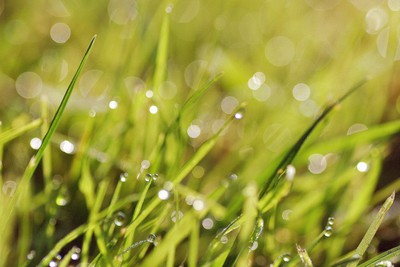



Sture hängde också med!

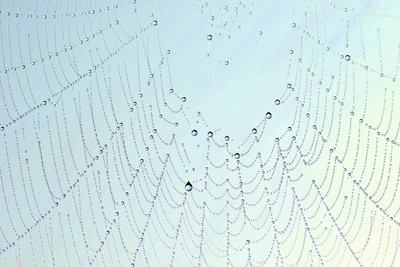

Mmmm axeeell.. Gootttt




Inväntar bättre hårdagar :P

Ein blötes fjäder





Sture hängde också med!



Mmmm axeeell.. Gootttt
